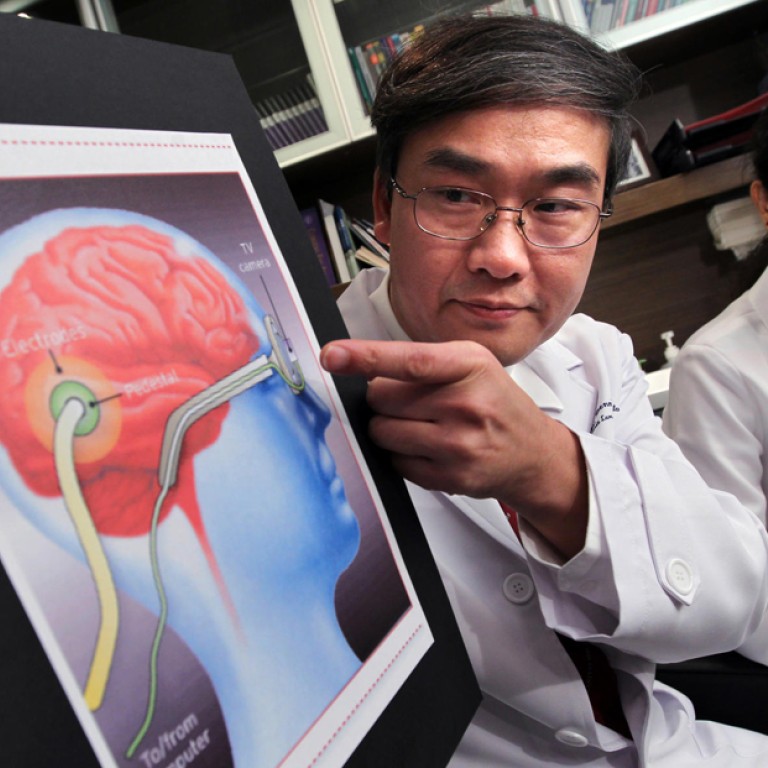
Hope for boy whose eyes were gouged out
Hong Kong expert wants to give six-year-old Bin-Bin electronic eyes and offers free care at his hospital for the years of operations ahead
A leading Hong Kong eye expert who visited a six-year-old mainland boy whose eyes were gouged out in an horrific attack says his hospital will treat him free of charge over the years ahead and hopes to eventually be able to help him "see" with a pair of electronic eyes.
Dennis Lam Shun-chiu led a team of specialists who said Guo Bin, known as Bin-Bin, was remarkably cheerful and brave.
Lam said the boy faced years of operations and placed his hospital in Shenzhen -the C-MER Dennis Lam Eye Hospital - at his service.
The hi-tech treatments will also involve putting sensors in his tongue and forehead to detect direction and movement.
According to the team, Bin-Bin still does not know the details of his condition or what happened to him when he was abducted while playing outside his home in Shanxi province on August 24.
He was found by relatives several hours later with his face covered in blood. His eyes were nearby, with the corneas missing.
"He seemed cheerful given that he has gone through so much. He is a very brave boy," said team member Dr Fairooz P. Manjandavida. "The incident was horrible, I have not heard of anything like this before."
Manjandavida, who works at Lam's Shenzhen hospital, said the boy had still not been told what had happened to his eyes although he kept asking why his surroundings were so dark. "We still do not know [if he has any] psychological trauma," she said.
The team has explained all the options to Bin-Bin's parents and are just waiting for their decision. If they approve, then the long series of operations will begin in a few weeks, after his injuries have had a chance to heal.
He will first be given false eyes to support his sockets and give him a more normal appearance.
In the medium term, Manjandavida said a navigation device could be installed, using sensors in his forehead and tongue to detect direction and people.
But the boy may have to wait 10 years before he can receive electronic eyes that enable him to see light and shapes through signals sent to his optic nerves.
In Europe, the United States and Japan, the technology has helped restore partial vision to people who, like Bin-Bin, still have functioning optic nerves.
Manjandavida said it still had to be determined whether the boy had serious tissue damage, which may mean the sockets cannot hold electronic eyes. But Lam said he believed the technology would develop to overcome these problems.
He said the hospital would provide all the treatment the boy needed in future at no charge. This included prosthetic eyes costing 50,000 yuan (HK$62,881), the tongue and forehead devices which cost up to US$20,000 (HK$155,000) and the electronic eyes at about US$100,000.
The boy has so far remained in a stable condition with no sign of infection. According to Lam and his team, his wounds are serious with fragmented bone in his right eye cavity.
The removal of his eyes had been conducted in an "extremely dirty" environment and there is a risk of inflammation, Lam said.

